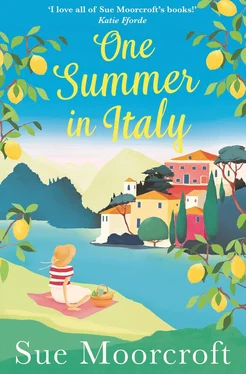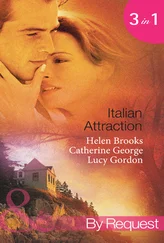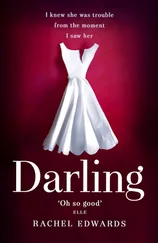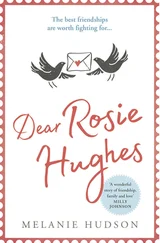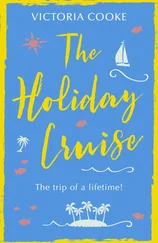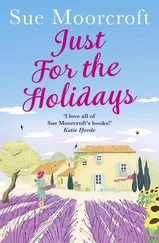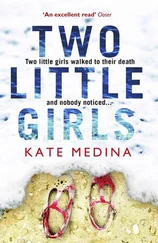But, right now, with two joyous days of freedom to enjoy in Montelibertà, she was seized by a ridiculous urge to jig around singing, ‘I’m here, I’m here, I’m really here!’
Instead, she strolled decorously past shops that sold shiny ceramics decorated with splashy yellow sunflowers and succulent purple grapes. In between the shops came pavement cafés, their parasols the same shade of ivory as those at Il Giardino. On this upper part of the hill the commercial ventures were interspersed with houses and apartments, lavishly ornamented with window boxes in full flower and lavender tumbling from the tops of garden walls. She thought the scent of lavender would ever-onwards remind her of her feeling of euphoria.
Nearer the town centre the residences petered out and the road became lined with shops and eating places, until Via Virgilio widened into Piazza Roma. Here the buildings were three or even four storeys, painted in earthy tones from ivory to apricot and umber, creating shade for the people passing by or sitting on benches along the way. A giant cartwheel sat in the centre with an old water pump and a profusion of flowers. The cobbles were laid in fan shapes, old and uneven enough to bear witness to a million treading feet.
One building of honey-coloured stone had a sweeping ornamental arch built into it and when Sofia stopped gazing up at cornices, wrought iron and shutters long enough to walk through, she found herself in Piazza Santa Lucia, faced with the gracefully imposing building that was Santa Lucia church.
The Palladian front was rendered and painted palest lemon with white raised plasterwork surrounding the circular windows and forming mock columns and niches. Both of the huge carved wooden doors were closed but the door-within-a-door in the one on the left stood slightly open as if to reassure the parishioners that they could visit any time. The upper storey curved and narrowed until it met the triangular gable.
Her father had been raised a Catholic; her mother had not. Sofia hadn’t been baptised or even attended church very often, but she thought she’d be OK to enter as her shorts were bermudas and her top wasn’t low-cut. Following Aurora’s directions, she made her way around the outside of the church, where the walls were of unrendered stone, to a plain door.
After hovering a moment, she knocked and entered a tall, cool, silent foyer that smelt of dust and incense. The door snapped to behind her, shutting out the sunlight.
A man in his sixties emerged from a nearby doorway, his smile lifting the ends of his big grey moustache. His fulsome eyebrows grew as if they’d been blown up and back by a strong wind. ‘Are you Miss Sofia Bianchi? I am Ernesto Milani.’
As he spoke in English, Sofia followed suit, shaking his hand and thanking him for sparing her his time.
‘Please, come this way,’ he rumbled as he turned towards the room from which he’d emerged. ‘I have looked at the register since Aurora Morbidelli speaks to me on the telephone and have information for you.’ His English was accented and far from faultless but it flowed musically from beneath the moustache.
‘Thank you!’ Eagerly, Sofia followed him into a little office of glass-fronted cabinets and piles of papers. A window stood open to catch the breeze and a large book lay open on the table. Ernesto seated himself at one side and Sofia took the chair at right angles.
Ernesto fished a pair of glasses from his top pocket, put them on and regarded Sofia over their rim. ‘Our current records we make on the computer but in 1997 we still record the events of our church in this book.’ He looked at her for a few moments more, his eyes brown and knowledgeable, then he took his glasses off again.
Wondering if he was waiting for her full attention before he went on – she had been trying to decipher the register from the corner of one eye – Sofia nodded. ‘I understand.’
‘Forgive me, but I must ask.’ A smile tried again to shift the weight of his moustache. ‘You are the daughter of Aldo Agnello Bianchi, yes?’
Surprise made her sit back. ‘Yes. But it wasn’t my dad who died in Italy in 1997. It was my grandparents, Agnello and Maria.’
He sighed pensively. ‘We were friends, Aldo and me, at school here in Montelibertà. I knew your grandparents also. I played in their garden and your grandmother made us a delicious drink from lemons. The family had their house in Via Salvatore.’ He gestured vaguely behind him, as if pointing the street out. ‘I remember very well. The Bianchi family and the Milani family, they attend this church, so we know each other.’
It was several seconds before Sofia could find her voice. The grandparents she’d never met and that her father had rarely spoken of leaped into focus as real people. Unexpectedly, her throat grew tight. ‘I never knew them. They died when I was seven. This is the first time I’ve visited Italy.’ She couldn’t help adding, because she’d really like someone to put some meat on the bare bones of what Aldo had confided, ‘And they never visited us in England.’
But Ernesto didn’t offer insight. Instead, his eyes grew expectant. ‘And Aldo …?’ His pause invited her to fill the silence.
Throat constricting, Sofia shook her head. ‘He died last summer.’ Briefly, she outlined Aldo’s history of heart trouble. ‘I never thought I’d meet anybody who’d remember him. He was a young man when he left Montelibertà.’
‘He was, he was,’ Ernesto sighed, eyes closing for a moment as he crossed himself. ‘I did not know. I am sorry for your loss. And for my own, though I had not seen Aldo for many years. When he met your mother—’
‘Did you know my mother ?’ Sofia’s heart almost leaped from her chest. ‘I’ve never met anybody but Dad who knew my mother! She seems to have had no family, and she died when I was five.’
His eyes were soft with sadness. ‘Yes, I knew her and of her passing. I knew from your family here.’
‘From my family here?’ Sofia repeated blankly. ‘How?’
Shaking his head as if still trying to comprehend the loss of his old friend, Ernesto drew the big register closer. ‘We said a mass,’ he observed, as if that settled the matter. ‘Now I show to you the names of your grandparents.’ He turned the big faded book so she could see line after line of entries in ornate inked script. Thanks to his pointing finger she was able to pick out the names Agnello Francesco Ricardo and Maria Vittoria Bianchi. Her eyes burned at this further link with the family she’d never known. A frustrating link because it came to a dead end – literally.
‘The funeral, it was here at Santa Lucia, one funeral for both. And here—’ Ernest pointed to a reference made up of letters and numbers ‘—here is a record of their place in the cemetery.’ He took out his phone and took a photo of the reference, an incongruously up-to-date way to make a note from the old ledger. ‘I will show you in a little while. But talking makes me thirsty. Will you join me to drink coffee in the piazza?’
‘That would be lovely,’ she replied with automatic courtesy and followed him out of the office, mind whirling with her good fortune at meeting someone who’d known Aldo well. And her mother! Aldo telling her to come to the church of Santa Lucia began to make a new kind of sense – he’d known that directing her there would increase her chances of falling into friendly hands.
For the millionth time she wondered why he hadn’t had more to do with his family yet had so wanted her to visit Montelibertà. She managed to stem her flow of questions until they’d rounded the front of the church and strolled over the cobbles to a café up a tiny street off the piazza, its situation ensuring shade from the strengthening midday sun. The shiny aluminium tables were incongruously modern in her opinion but Ernesto selected one on at the edges of the group. A waiter arrived promptly, asking after Ernesto’s health in rapid Italian. Ernesto ordered espresso and Sofia Americano and the waiter beamed and bustled off. The waiting staff wore dark green waistcoats with their white shirts and black trousers. Sofia preferred Casa Felice’s all black and white look.
Читать дальше
